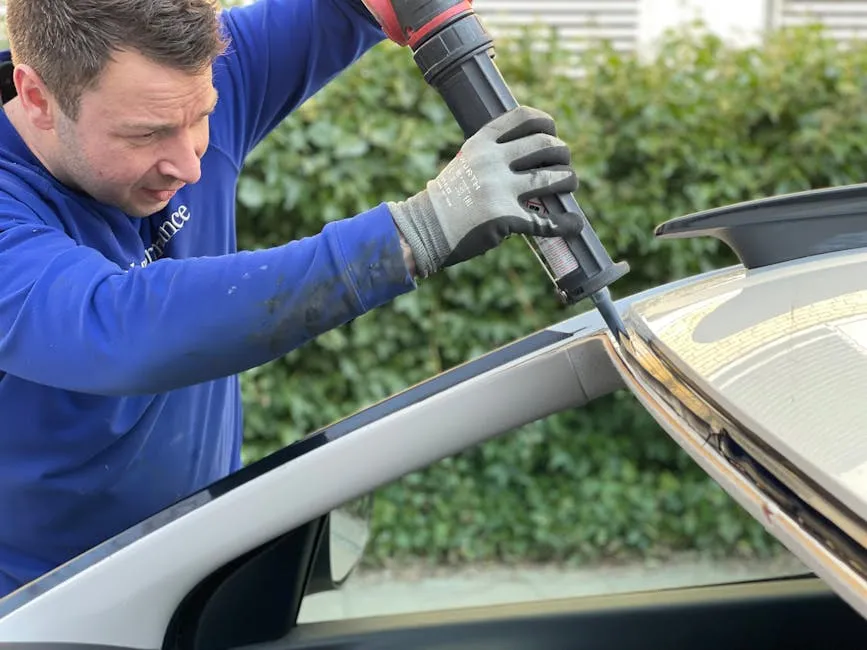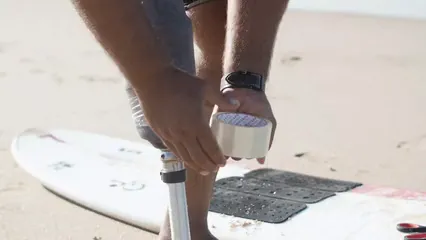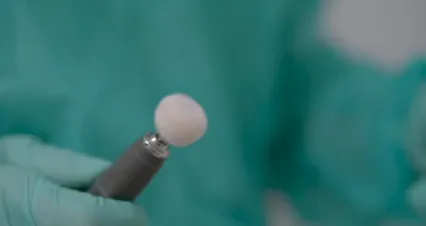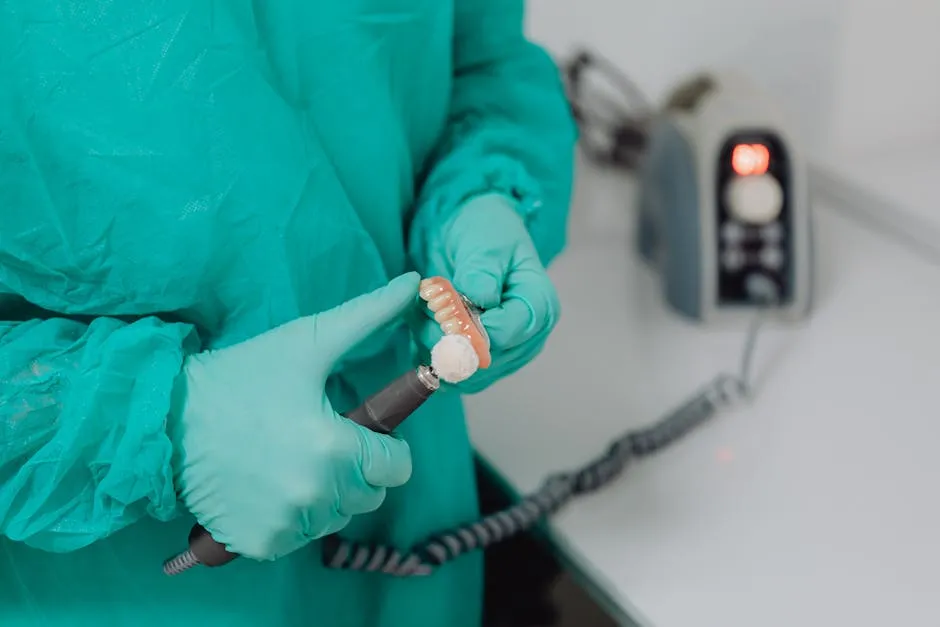
Why Was Cushion Grip Discontinued? Exploring Alternatives for Denture Adhesives
Some of the top alternatives include:
- Comfort Lining: A thermoplastic adhesive that offers a similar feel and can last up to nine days.
- Cushion Correct: Provides a soft, cushion-like fit and is easy to apply directly from the tube.
- Denttach: Known for its strong hold and water resistance, making it suitable for active users.
- Sea Bond: Features pre-cut pads for easy application and a dependable hold.
- Poligrip: Available in various formulas, it has been a trusted choice for many denture wearers.

3. How do I apply these adhesive alternatives?
Applying these adhesives is generally straightforward:
- Comfort Lining: Heat in hot water, apply to the denture surface, insert dentures, and allow to cool.
- Cushion Correct: Squeeze directly from the tube onto the denture and press firmly into place.
- Denttach: Apply as per package instructions, ensuring a snug fit.
Always clean and dry dentures before application for the best results.
4. Are these alternatives safe to use?
Yes, most alternatives are designed with safety in mind. For instance, Comfort Lining and Denttach are zinc-free, which is a plus for denture wearers concerned about the health risks associated with zinc. Always check the ingredient list to ensure you’re comfortable with what you’re using.
5. Can I still find Cushion Grip products?
Finding Cushion Grip may be tricky since it’s been discontinued. However, some pharmacies and online retailers may still have limited stock. Websites like Amazon occasionally list remaining products. Keep an eye out for any resurgence or similar products that might hit the market.
For your dental care needs beyond adhesives, consider investing in a good Denture Cleaning Tablets to keep your smile fresh and clean. After all, a clean denture is a happy denture!
Please let us know what you think about our content by leaving a comment down below!
Thank you for reading till here 🙂
All images from Pexels
Pros and Cons:
- Pros:
- Long-lasting hold.
- Comfortable cushioning effect.
- Zinc-free, making it safer for daily use.
- Cons:
- Some users find it can feel gummy if not heated properly.
- Requires a bit of practice for the perfect application.

Cushion Correct and Cushion Correct EZ
Description: Cushion Correct and its sibling Cushion Correct EZ are both designed to fill the void left by Cushion Grip. These products work by creating a soft, cushiony layer between the denture and gums. Users praise the ease of use, as they apply directly from the tube without heating. Cushion Correct EZ is particularly noted for its user-friendly application, which doesn’t require warming.
User Experiences: Many users have transitioned to these products, sharing their positive experiences. One user exclaimed, “Cushion Correct feels just like Cushion Grip! I no longer worry about my dentures slipping while enjoying a meal.” Another noted, “Cushion Correct EZ is a lifesaver! It’s so easy to apply and lasts all day.” Both products have received favorable reviews for their effectiveness and comfort.

For those who want to give Cushion Correct a try, consider checking out Cushion Correct Denture Adhesive. It may just be the solution you’ve been searching for!
For more information on alternatives to Cushion Grip, check out this article on why was cushion grip alternatives.

Denttach
Description: Denttach is another notable contender in the denture adhesive market. It boasts strong adhesion and water resistance, making it suitable for daily use. Denttach is designed to keep dentures securely in place, even during more vigorous activities.
Comparison with Cushion Grip: While Cushion Grip emphasizes comfort and a soft fit, Denttach focuses on a more robust hold. Users who prefer a firmer grip often favor Denttach over Cushion Grip. Feedback indicates that Denttach offers a reliable option for those needing a stronger adhesive without sacrificing comfort.

If you’re seeking a strong alternative, consider Denttach Denture Adhesive. It’s designed for those who need that extra level of security in their daily lives.
Other Notable Mentions
Beyond the main contenders, a few other alternatives are worth mentioning. Sea Bond and Poligrip have both garnered attention in the denture adhesive community.
- Sea Bond: This adhesive offers a unique approach with its pre-cut pads. Users have reported that Sea Bond provides a dependable hold while being easy to apply. Priced at around $9.79, it’s a budget-friendly option. You can find it here.
- Poligrip: Known for its cream and powder formats, Poligrip has been a longstanding choice for many denture wearers. It typically retails around $19.99. However, some users express concerns about irritation compared to thermoplastic options. Check it out here.
In summary, while Cushion Grip may no longer be available, the alternatives on the market today offer a wealth of options. From Comfort Lining to Cushion Correct, there’s a solution tailored for every denture wearer’s needs. With a little exploration, you can find your new favorite adhesive that keeps your smile secure and your confidence intact.

Choosing the Right Adhesive
Factors to Consider
Finding the right denture adhesive can feel like searching for a needle in a haystack. With so many options, what should you consider? Here’s the scoop on the key factors to keep in mind:
- Comfort: You want an adhesive that feels good in your mouth. Look for products that provide a cushioned fit and minimize irritation. Comfort is king when it comes to denture wear.
- Longevity: Nobody enjoys frequent reapplications. Choose an adhesive that offers a long-lasting hold. Products like Comfort Lining can last up to nine days, which means fewer interruptions in your day.
- Ease of Use: Not all adhesives are created equal in the application department. Some require heating, while others come ready to use. Find one that fits your lifestyle and skill level. If you’re not a fan of fiddling, a user-friendly option like Cushion Correct EZ might be your best bet.
- Price: Budget matters! While some adhesives come with a hefty price tag, others are wallet-friendly. Evaluate how much you’re willing to spend. A more expensive product might save you money in the long run if it lasts longer and requires fewer reapplications.
- Personal Needs: Everyone’s mouth is different. You may need to try a few options to find the one that suits you best. Think about your lifestyle and any specific requirements, like sensitivities or preferences for certain ingredients.

User Recommendations
Real-life experiences can be incredibly helpful when choosing a denture adhesive. Many users have transitioned to alternatives, and their insights can guide your decision.
One user mentioned switching to Comfort Lining after the discontinuation of Cushion Grip. They shared, “I was pleasantly surprised! It’s thicker but offers a similar hold. Plus, it lasts longer!” Another user raved about Cushion Correct, saying, “I love how easy it is to apply! No heating required, and it keeps my dentures secure all day.”
A frequent theme among users is the importance of proper application. One user discovered that heating Comfort Lining made it easier to work with. “It’s like creating a perfect fit,” they said. “Just make sure to follow the instructions carefully!”
However, not all experiences were positive. Some users found Comfort Lining tricky to apply, noting it became unmanageable if not heated correctly. They recommended watching tutorial videos to master the process.
In summary, users appreciate the comfort and reliability of these alternatives. Take the time to explore recommendations and find what resonates with your needs. With a little trial and error, you’ll discover the adhesive that keeps your smile shining bright!

Conclusion
The discontinuation of Cushion Grip may have left many denture wearers feeling lost, but a world of alternatives is waiting to be explored. From Comfort Lining to Denttach, each product offers unique benefits that can help maintain comfort and confidence in your smile.
Comfort Lining, for instance, mimics the soft cushioning effect that Cushion Grip fans adored. It’s user-friendly and can last up to nine days. Denttach, on the other hand, provides a strong hold and is designed for those who need a bit more security.
As technology continues to advance, we can expect even better solutions for denture care in the future. New products are emerging, promising improved comfort and longevity. Don’t let the loss of Cushion Grip dampen your spirit—embrace the alternatives, and keep smiling brightly! With a little experimentation, you’ll find the right adhesive that fits your needs. Remember, your smile deserves the best!

FAQs
1. Why was Cushion Grip discontinued?
Cushion Grip was discontinued due to a mix of business and regulatory reasons. The manufacturer faced challenges that affected production and distribution. These hurdles led them to make the difficult decision to stop producing a product that many relied on for comfort and security.
2. What are the best alternatives to Cushion Grip?
Some of the top alternatives include:
- Comfort Lining: A thermoplastic adhesive that offers a similar feel and can last up to nine days.
- Cushion Correct: Provides a soft, cushion-like fit and is easy to apply directly from the tube.
- Denttach: Known for its strong hold and water resistance, making it suitable for active users.
- Sea Bond: Features pre-cut pads for easy application and a dependable hold.
- Poligrip: Available in various formulas, it has been a trusted choice for many denture wearers.

3. How do I apply these adhesive alternatives?
Applying these adhesives is generally straightforward:
- Comfort Lining: Heat in hot water, apply to the denture surface, insert dentures, and allow to cool.
- Cushion Correct: Squeeze directly from the tube onto the denture and press firmly into place.
- Denttach: Apply as per package instructions, ensuring a snug fit.
Always clean and dry dentures before application for the best results.
4. Are these alternatives safe to use?
Yes, most alternatives are designed with safety in mind. For instance, Comfort Lining and Denttach are zinc-free, which is a plus for denture wearers concerned about the health risks associated with zinc. Always check the ingredient list to ensure you’re comfortable with what you’re using.
5. Can I still find Cushion Grip products?
Finding Cushion Grip may be tricky since it’s been discontinued. However, some pharmacies and online retailers may still have limited stock. Websites like Amazon occasionally list remaining products. Keep an eye out for any resurgence or similar products that might hit the market.
For your dental care needs beyond adhesives, consider investing in a good Denture Cleaning Tablets to keep your smile fresh and clean. After all, a clean denture is a happy denture!
Please let us know what you think about our content by leaving a comment down below!
Thank you for reading till here 🙂
All images from Pexels
Introduction
In the world of denture care, Cushion Grip was a beloved product that offered comfort and security for many users. But when it vanished from shelves, it left a gaping hole in the hearts and mouths of denture wearers everywhere. This thermoplastic denture adhesive provided a snug fit and minimized irritation, making it a go-to choice. So, what led to its untimely discontinuation? And fear not, faithful denture users—what alternatives can replace this cherished adhesive?
The reasons behind the discontinuation of Cushion Grip are multifaceted. Regulatory challenges and business decisions by its manufacturer played a significant role. While this news may have sent users scrambling, it also opened the door to a variety of alternatives that promise to keep your dentures snug and your smile bright.
This blog post will explore Cushion Grip’s legacy, understand the reasons for its absence, and provide you with an array of alternatives. From Comfort Lining to Cushion Correct, there are options out there that might just become your new favorite denture adhesive. Buckle up, because we’re about to navigate the exciting world of dental adhesives—one that may lead you to the comfort and confidence you seek in your smile!

Understanding Cushion Grip
What Is Cushion Grip?
Cushion Grip is a thermoplastic denture adhesive that revolutionized denture wear. Its primary purpose? To provide a snug, comfortable fit for those sporting dentures. Its unique formulation consists of a thermoplastic polymer, which is a fancy way of saying it molds to your gums when heated. This creates a soft, cushioned layer between your dentures and gums, acting like a comfy pillow for your mouth.
What makes Cushion Grip stand out? First, it’s waterproof. This means it holds its grip even when you’re enjoying a glass of water or chowing down on your favorite soup. Second, it lasts for days—yep, you read that right! Users often reported that one application could keep their dentures secure for up to four days. Talk about a game changer for denture wearers!

Benefits of Using Cushion Grip
The advantages of using Cushion Grip are numerous. For starters, it reduces irritation. Many denture wearers struggle with discomfort caused by traditional adhesives. Cushion Grip alleviates this by providing that soft cushioning effect, which helps to eliminate sore spots.
Ease of application is another major plus. Simply heat it, apply it, and let it cool—voilà! You’re ready for a day of confidence. Users rave about how straightforward it is to use compared to sticky pastes that can be messy and frustrating. One satisfied customer shared, “I found my confidence restored! No more worrying about my dentures slipping when I smile or laugh!”
If you’re looking for something that can provide that same level of comfort, you might want to try Comfort Lining Thermoplastic Denture Adhesive. It mimics the soft cushioning effect that Cushion Grip fans adored and can last up to nine days. Who wouldn’t want that kind of peace of mind?

Moreover, the long-lasting hold means fewer reapplications throughout the day. Imagine spending more time enjoying life without the constant need to fuss over your adhesive. The feedback from delighted users paints a picture of comfort and reliability that many sorely miss since its discontinuation.
The Discontinuation of Cushion Grip
Sadly, even the best products can face tough times. Cushion Grip’s discontinuation stemmed from a mix of business decisions and regulatory hurdles. The manufacturer, once a trusted name, faced challenges that led to this heartbreaking decision. Long-time users were left feeling abandoned, like a child losing their favorite toy.
The emotional impact on loyal users is palpable. Many have shared their frustration and disappointment. One user lamented, “Losing Cushion Grip felt like losing a friend. I relied on it for comfort every day!” The denture community mourned the loss of a product that had brought them comfort and confidence.
As we navigate through this gap, it’s essential to recognize the bond users had with Cushion Grip. It wasn’t just an adhesive; it was a source of peace of mind and self-assurance for many. The search for alternatives is now on, but the legacy of Cushion Grip remains.

Alternatives to Cushion Grip
Overview of Popular Alternatives
When Cushion Grip left the denture adhesive scene, it left many users wondering what to do next. Fortunately, the market is brimming with alternatives designed to provide the comfort and security denture wearers crave. These products range from thermoplastic adhesives to innovative gel formulations. In this section, we’ll break down some of the most popular alternatives that can help you maintain that perfect smile.

Comfort Lining Thermoplastic Denture Adhesive
Description: Comfort Lining is a thermoplastic denture adhesive that aims to replicate the benefits of Cushion Grip. This adhesive is applied in a similar manner: heat it, apply it, and let it cool for a snug fit. Users report that it can last anywhere from six to nine days, depending on individual habits. Many users appreciate that it molds to their gums, creating a soft barrier that minimizes irritation.
Application Process: To use Comfort Lining, users should first heat it in hot water for about ten minutes. Once softened, it can be easily applied to the denture surface. After placing the dentures in, users recommend allowing them to cool for optimal adhesion.
Pros and Cons:
- Pros:
- Long-lasting hold.
- Comfortable cushioning effect.
- Zinc-free, making it safer for daily use.
- Cons:
- Some users find it can feel gummy if not heated properly.
- Requires a bit of practice for the perfect application.

Cushion Correct and Cushion Correct EZ
Description: Cushion Correct and its sibling Cushion Correct EZ are both designed to fill the void left by Cushion Grip. These products work by creating a soft, cushiony layer between the denture and gums. Users praise the ease of use, as they apply directly from the tube without heating. Cushion Correct EZ is particularly noted for its user-friendly application, which doesn’t require warming.
User Experiences: Many users have transitioned to these products, sharing their positive experiences. One user exclaimed, “Cushion Correct feels just like Cushion Grip! I no longer worry about my dentures slipping while enjoying a meal.” Another noted, “Cushion Correct EZ is a lifesaver! It’s so easy to apply and lasts all day.” Both products have received favorable reviews for their effectiveness and comfort.

For those who want to give Cushion Correct a try, consider checking out Cushion Correct Denture Adhesive. It may just be the solution you’ve been searching for!
For more information on alternatives to Cushion Grip, check out this article on why was cushion grip alternatives.

Denttach
Description: Denttach is another notable contender in the denture adhesive market. It boasts strong adhesion and water resistance, making it suitable for daily use. Denttach is designed to keep dentures securely in place, even during more vigorous activities.
Comparison with Cushion Grip: While Cushion Grip emphasizes comfort and a soft fit, Denttach focuses on a more robust hold. Users who prefer a firmer grip often favor Denttach over Cushion Grip. Feedback indicates that Denttach offers a reliable option for those needing a stronger adhesive without sacrificing comfort.

If you’re seeking a strong alternative, consider Denttach Denture Adhesive. It’s designed for those who need that extra level of security in their daily lives.
Other Notable Mentions
Beyond the main contenders, a few other alternatives are worth mentioning. Sea Bond and Poligrip have both garnered attention in the denture adhesive community.
- Sea Bond: This adhesive offers a unique approach with its pre-cut pads. Users have reported that Sea Bond provides a dependable hold while being easy to apply. Priced at around $9.79, it’s a budget-friendly option. You can find it here.
- Poligrip: Known for its cream and powder formats, Poligrip has been a longstanding choice for many denture wearers. It typically retails around $19.99. However, some users express concerns about irritation compared to thermoplastic options. Check it out here.
In summary, while Cushion Grip may no longer be available, the alternatives on the market today offer a wealth of options. From Comfort Lining to Cushion Correct, there’s a solution tailored for every denture wearer’s needs. With a little exploration, you can find your new favorite adhesive that keeps your smile secure and your confidence intact.

Choosing the Right Adhesive
Factors to Consider
Finding the right denture adhesive can feel like searching for a needle in a haystack. With so many options, what should you consider? Here’s the scoop on the key factors to keep in mind:
- Comfort: You want an adhesive that feels good in your mouth. Look for products that provide a cushioned fit and minimize irritation. Comfort is king when it comes to denture wear.
- Longevity: Nobody enjoys frequent reapplications. Choose an adhesive that offers a long-lasting hold. Products like Comfort Lining can last up to nine days, which means fewer interruptions in your day.
- Ease of Use: Not all adhesives are created equal in the application department. Some require heating, while others come ready to use. Find one that fits your lifestyle and skill level. If you’re not a fan of fiddling, a user-friendly option like Cushion Correct EZ might be your best bet.
- Price: Budget matters! While some adhesives come with a hefty price tag, others are wallet-friendly. Evaluate how much you’re willing to spend. A more expensive product might save you money in the long run if it lasts longer and requires fewer reapplications.
- Personal Needs: Everyone’s mouth is different. You may need to try a few options to find the one that suits you best. Think about your lifestyle and any specific requirements, like sensitivities or preferences for certain ingredients.

User Recommendations
Real-life experiences can be incredibly helpful when choosing a denture adhesive. Many users have transitioned to alternatives, and their insights can guide your decision.
One user mentioned switching to Comfort Lining after the discontinuation of Cushion Grip. They shared, “I was pleasantly surprised! It’s thicker but offers a similar hold. Plus, it lasts longer!” Another user raved about Cushion Correct, saying, “I love how easy it is to apply! No heating required, and it keeps my dentures secure all day.”
A frequent theme among users is the importance of proper application. One user discovered that heating Comfort Lining made it easier to work with. “It’s like creating a perfect fit,” they said. “Just make sure to follow the instructions carefully!”
However, not all experiences were positive. Some users found Comfort Lining tricky to apply, noting it became unmanageable if not heated correctly. They recommended watching tutorial videos to master the process.
In summary, users appreciate the comfort and reliability of these alternatives. Take the time to explore recommendations and find what resonates with your needs. With a little trial and error, you’ll discover the adhesive that keeps your smile shining bright!

Conclusion
The discontinuation of Cushion Grip may have left many denture wearers feeling lost, but a world of alternatives is waiting to be explored. From Comfort Lining to Denttach, each product offers unique benefits that can help maintain comfort and confidence in your smile.
Comfort Lining, for instance, mimics the soft cushioning effect that Cushion Grip fans adored. It’s user-friendly and can last up to nine days. Denttach, on the other hand, provides a strong hold and is designed for those who need a bit more security.
As technology continues to advance, we can expect even better solutions for denture care in the future. New products are emerging, promising improved comfort and longevity. Don’t let the loss of Cushion Grip dampen your spirit—embrace the alternatives, and keep smiling brightly! With a little experimentation, you’ll find the right adhesive that fits your needs. Remember, your smile deserves the best!

FAQs
1. Why was Cushion Grip discontinued?
Cushion Grip was discontinued due to a mix of business and regulatory reasons. The manufacturer faced challenges that affected production and distribution. These hurdles led them to make the difficult decision to stop producing a product that many relied on for comfort and security.
2. What are the best alternatives to Cushion Grip?
Some of the top alternatives include:
- Comfort Lining: A thermoplastic adhesive that offers a similar feel and can last up to nine days.
- Cushion Correct: Provides a soft, cushion-like fit and is easy to apply directly from the tube.
- Denttach: Known for its strong hold and water resistance, making it suitable for active users.
- Sea Bond: Features pre-cut pads for easy application and a dependable hold.
- Poligrip: Available in various formulas, it has been a trusted choice for many denture wearers.

3. How do I apply these adhesive alternatives?
Applying these adhesives is generally straightforward:
- Comfort Lining: Heat in hot water, apply to the denture surface, insert dentures, and allow to cool.
- Cushion Correct: Squeeze directly from the tube onto the denture and press firmly into place.
- Denttach: Apply as per package instructions, ensuring a snug fit.
Always clean and dry dentures before application for the best results.
4. Are these alternatives safe to use?
Yes, most alternatives are designed with safety in mind. For instance, Comfort Lining and Denttach are zinc-free, which is a plus for denture wearers concerned about the health risks associated with zinc. Always check the ingredient list to ensure you’re comfortable with what you’re using.
5. Can I still find Cushion Grip products?
Finding Cushion Grip may be tricky since it’s been discontinued. However, some pharmacies and online retailers may still have limited stock. Websites like Amazon occasionally list remaining products. Keep an eye out for any resurgence or similar products that might hit the market.
For your dental care needs beyond adhesives, consider investing in a good Denture Cleaning Tablets to keep your smile fresh and clean. After all, a clean denture is a happy denture!
Please let us know what you think about our content by leaving a comment down below!
Thank you for reading till here 🙂
All images from Pexels




